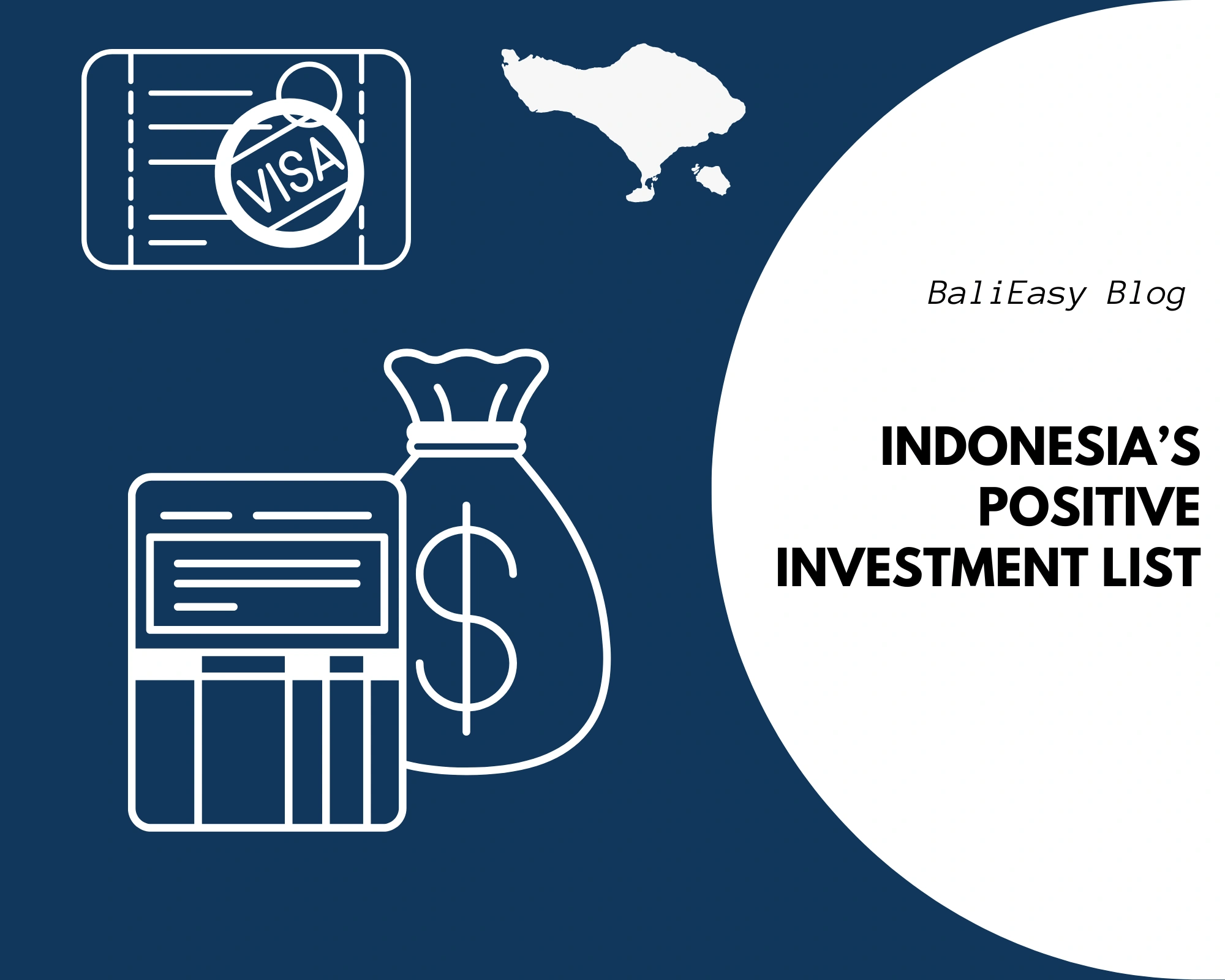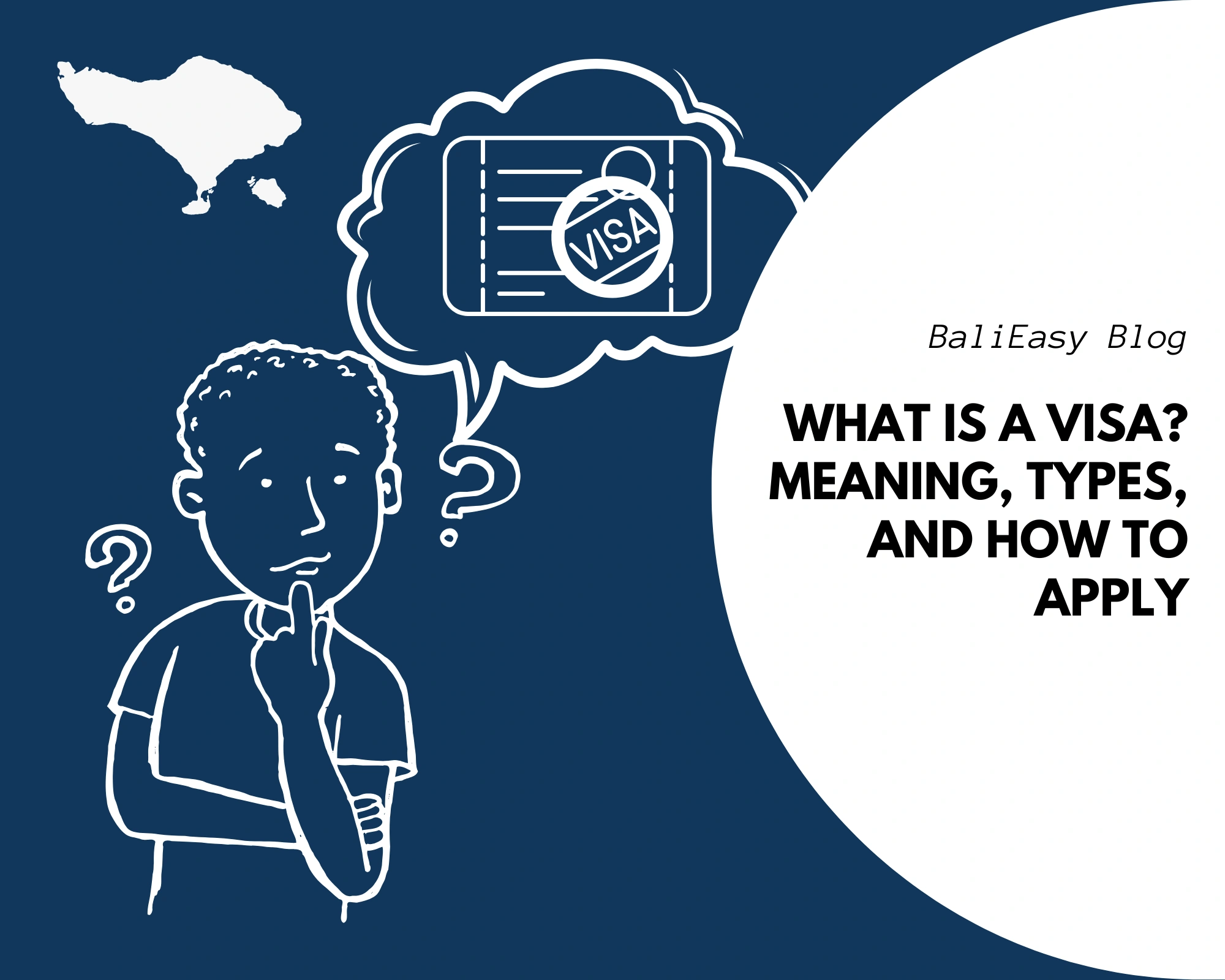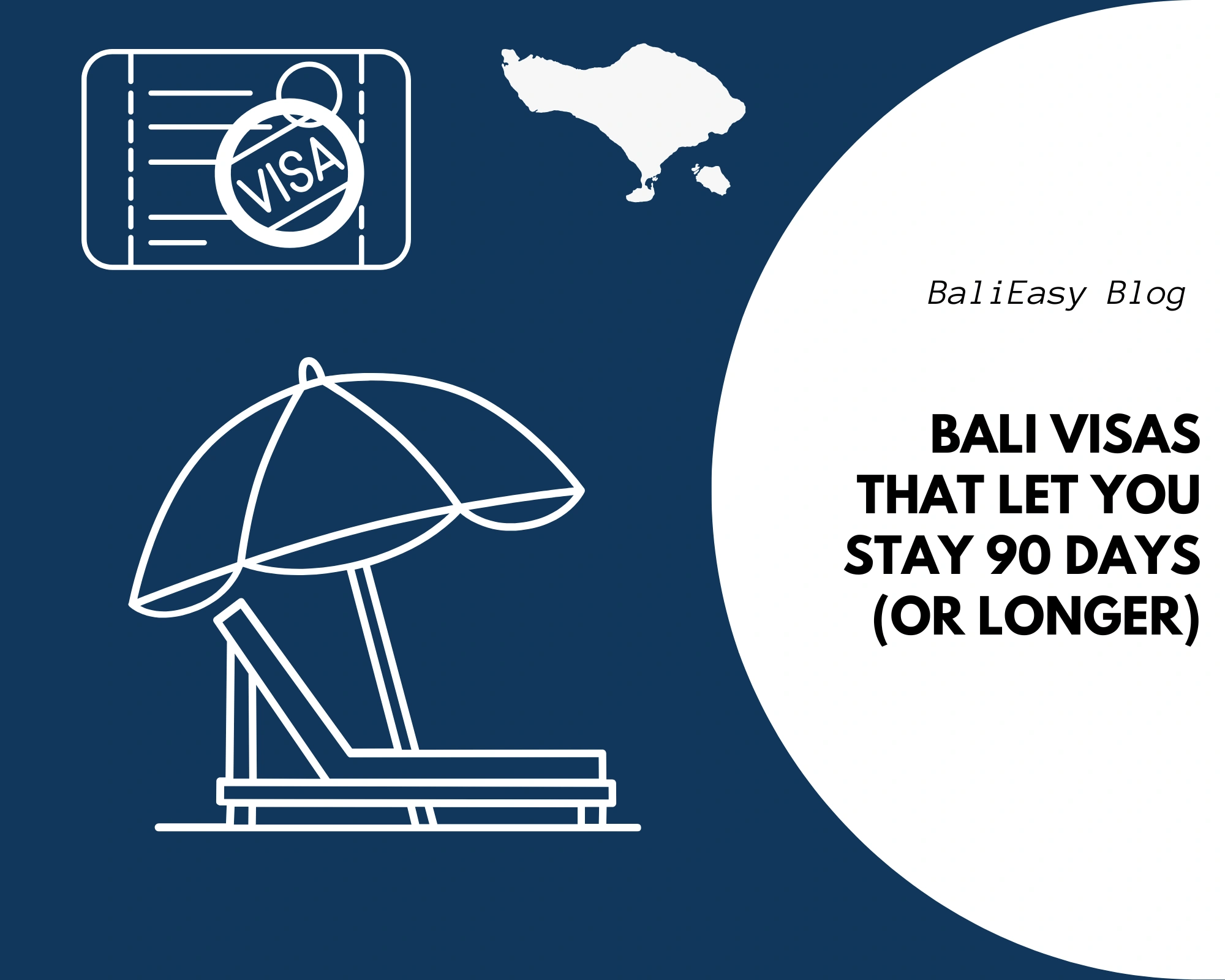
Indonesia’s Positive Investment List
Indonesia’s Positive Investment List is officially the Daftar Prioritas Investasi (DPI) inside Indonesia’s rules on Business Fields for Investment (Bidang

Planning a surf trip to Bali, studying in Europe, or starting a new career abroad? In almost every case, you can’t just show up at the airport, you need official permission to enter. That permission is called a visa.
Understanding visas is essential for smooth travel, whether you’re a tourist, student, professional, or digital nomad. This guide breaks down what a visa is, why it matters, the main visa categories, and how to apply, plus a closer look at Indonesia’s options such as the eVOA (Electronic Visa on Arrival).
A visa is an entry authorization issued by the country you want to visit. It may come as a physical stamp in your passport, a sticker, or a digital record linked to your passport number.
Visas serve two key purposes:
Some visas are quick and fully online, while others require embassy appointments, financial proofs, or interviews.
Visa requirements depend on your nationality and reason for travel. Below are the most common categories explained in plain terms:
For short-term trips like holidays, family visits, or sightseeing. Validity ranges from a few weeks to a few months.
Example: Indonesia’s eVOA lets tourists stay up to 30 days, extendable once for another 30.
For travelers attending meetings, trade fairs, or negotiating contracts abroad. May require an invitation letter from a local company.
Issued to patients seeking treatment overseas. Often requires hospital confirmation and proof of financial capacity.
Needed if you have a job offer in another country. Typically valid 1–3 years and tied to a specific employer.
For those enrolled in foreign universities or schools. The length depends on the academic program. Some countries allow part-time work.
Designed for young adults (18–30) who live with a host family abroad and provide childcare. Common in Europe and the U.S.
A new category for remote workers. Countries like Indonesia, Portugal, and Costa Rica now offer long-stay visas if you can prove steady income and health insurance.
Allows dependents to join someone legally residing abroad. Usually requires proof of relationship (marriage/birth certificate) and financial support from the sponsor.
For retirees who want to live abroad. Southeast Asian countries such as Indonesia and Malaysia offer this option with proof of pension or retirement savings.
The process differs depending on the country, but most applications fall into four formats:
While each country sets its own requirements, most applications ask for:
Processing times vary, from minutes (eVisas) to several weeks (work or study visas).
If you’re visiting Bali or Indonesia, the most common option is the Electronic Visa on Arrival (eVOA).
For a detailed breakdown of which nationalities can apply, see our guide on Indonesia eVOA: Eligible Countries.
This system avoids long queues at the airport and ensures your trip starts smoothly.
👉 You can apply through trusted providers such as Visa BaliEasy, an official partner helping travelers with eVOA, long-stay, and other Indonesian visa services.
A visa is more than a formality, it’s the official key to entering and enjoying another country legally. Whether you’re a backpacker, student, retiree, or remote worker, understanding visa categories helps you plan with confidence.
If Indonesia is your next stop, consider applying for your eVOA or other visas via Visa BaliEasy. With quick processing, local expertise, and official Telkomsel partnership, we make your Bali journey hassle-free.

Indonesia’s Positive Investment List is officially the Daftar Prioritas Investasi (DPI) inside Indonesia’s rules on Business Fields for Investment (Bidang

For 90 days in Bali without leaving Indonesia, the most practical option for tourists is the C1 Tourist Visit Visa
WhatsApp us
📌 How It Works: